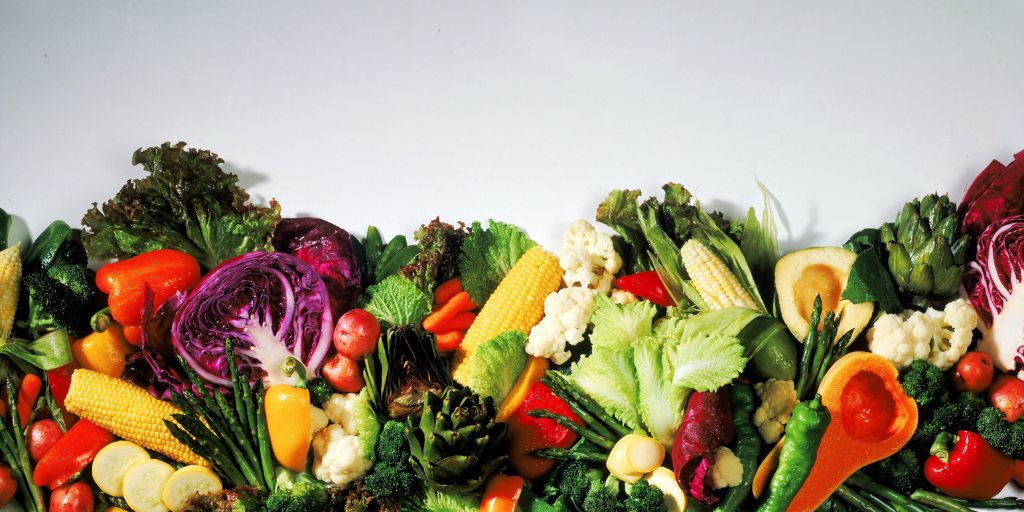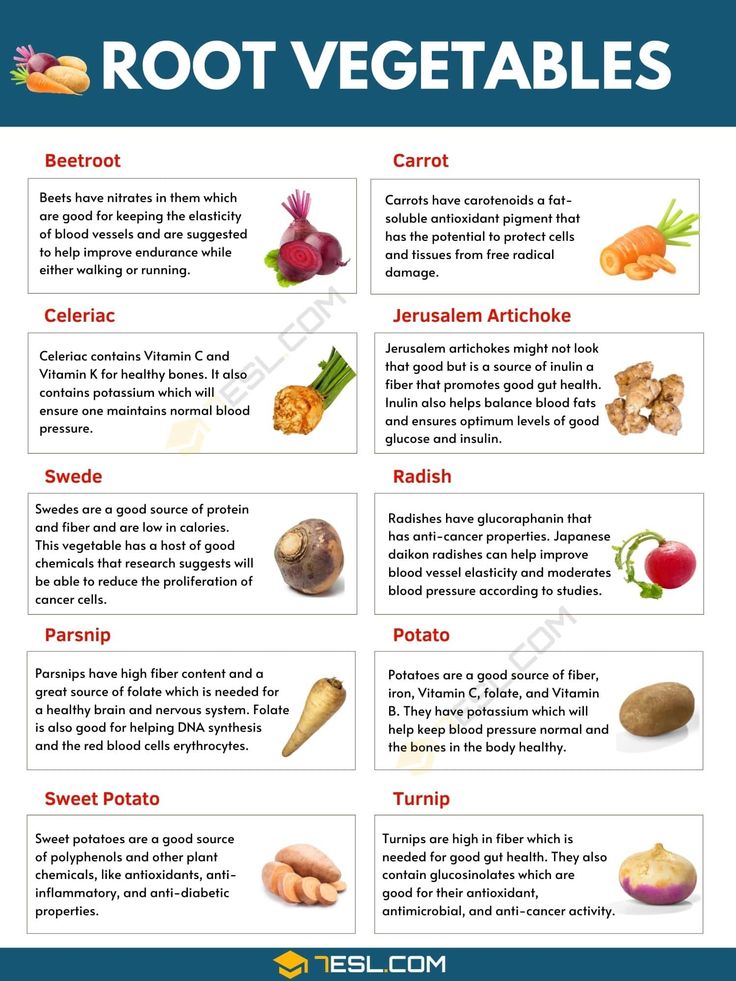10 Importance of Vegetables
1. Vegetables provide essential nutrients for overall health.
2. Regular consumption helps prevent chronic diseases. Eating vegetables is vital for a balanced diet and overall well-being. They offer a wide array of vitamins, minerals, and fiber necessary for optimal body function. Vegetables are low in calories but rich in antioxidants, which help fight inflammation and reduce the risk of many diseases.
Including a variety of vegetables in your diet can boost your immune system and improve digestion. They are also beneficial for maintaining healthy skin and weight management. Consuming vegetables regularly can enhance energy levels and mental clarity. Making vegetables a staple in your diet supports long-term health and vitality. Incorporate them into your meals to enjoy their numerous health benefits.
Introduction To A Healthier Lifestyle
Eating vegetables is essential for a healthy lifestyle. They provide vital nutrients and help fight diseases. Transitioning to a veggie-rich diet can improve your well-being.
The Role Of 10 Importance of Vegetables
10 Importance of Vegetables are the foundation of a balanced diet. They are packed with vitamins, minerals, and fibers.
- Vitamins: Vegetables are rich in vitamins A, C, and K.
- Minerals: They provide essential minerals like potassium and magnesium.
- Fibers: High fiber content aids digestion and maintains gut health.
| Vegetable | Key Nutrients | Health Benefits |
|---|---|---|
| Spinach | Iron, Vitamin K | Supports blood health and bone strength |
| Carrots | Vitamin A, Beta-carotene | Improves vision and boosts immunity |
| Broccoli | Vitamin C, Fiber | Enhances immunity and aids digestion |
Transitioning To A Veggie-rich Diet
Switching to a veggie-rich diet can be simple. Start by adding more vegetables to your meals. Here are some tips:
- Breakfast: Add spinach or bell peppers to your omelette.
- Lunch: Include a side salad with mixed greens.
- Dinner: Make half of your plate vegetables.
Gradually increase the variety of vegetables in your diet. Enjoy the different tastes and textures they offer. Your body will thank you for the nutritious boost.

Credit: m.facebook.com
Nutrient Powerhouses
Vegetables are true nutrient powerhouses, packed with essential vitamins, minerals, and fiber. They play a vital role in maintaining our health and well-being.
Vitamins And Minerals
Vegetables are rich in vitamins and minerals. These nutrients help your body function properly. They boost your immune system and keep your skin healthy. Here are some key vitamins and minerals found in vegetables:
- Vitamin A: Found in carrots and sweet potatoes. It helps with vision and immune function.
- Vitamin C: Found in bell peppers and broccoli. It helps with healing and skin health.
- Potassium: Found in spinach and tomatoes. It helps control blood pressure.
- Iron: Found in leafy greens like kale. It helps with oxygen transport in the blood.
Fiber For Digestion
Vegetables are also high in fiber. Fiber is crucial for a healthy digestive system. It helps food move through your digestive tract smoothly. Here are some benefits of fiber:
- Prevents constipation.
- Helps control blood sugar levels.
- Supports weight management by making you feel full.
Some high-fiber vegetables include:
| Vegetable | Fiber Content (per 100g) |
|---|---|
| Broccoli | 2.6g |
| Carrots | 2.8g |
| Spinach | 2.2g |
Weight Management Made Easy
Managing weight is easier with vegetables. They are low in calories but high in nutrients. This helps you feel full and satisfied. Here’s how vegetables can help with weight management.
Low In Calories
Vegetables are naturally low in calories. This means you can eat more without gaining weight. For example, a cup of spinach has only 7 calories. Compare this to a cup of rice, which has about 200 calories.
| Vegetable | Calories per Cup |
|---|---|
| Spinach | 7 |
| Broccoli | 55 |
| Carrots | 52 |
High In Satisfaction
Vegetables are high in fiber. Fiber helps you feel full longer. This reduces the chances of overeating. For example, a bowl of vegetable soup can keep you satisfied for hours.
- Fiber slows digestion.
- Reduces hunger pangs.
- Keeps you full longer.
Eating a variety of vegetables can make meals more satisfying. This helps in controlling portion sizes and managing weight.
Chronic Disease Fighters
Eating vegetables can help fight chronic diseases. They contain vital nutrients and antioxidants. These elements protect our bodies and boost our health. Let’s explore how vegetables support heart health and prevent diabetes.
Heart Health
Vegetables are excellent for your heart. They are low in fat and calories. This helps maintain a healthy weight. They are also rich in fiber. Fiber helps reduce bad cholesterol levels.
Leafy greens like spinach are especially good. They contain potassium and magnesium. These minerals help regulate blood pressure. Lower blood pressure reduces the risk of heart disease.
Tomatoes are another heart-healthy choice. They are high in lycopene. Lycopene is an antioxidant that protects the heart. Eating tomatoes can reduce inflammation and improve heart function.
Diabetes Prevention
Vegetables help prevent diabetes. They are low in sugar and high in nutrients. This helps control blood sugar levels. Vegetables also have a low glycemic index. This means they don’t cause big spikes in blood sugar.
Non-starchy vegetables like broccoli are ideal. They provide essential vitamins without extra carbs. Carrots and bell peppers are also good choices. They offer a sweet taste without raising blood sugar.
Eating a variety of vegetables daily is key. This ensures you get all necessary nutrients. It also helps you stay full longer. This can prevent overeating and weight gain, reducing diabetes risk.
Mood And Energy Boosters
Vegetables are not just essential for your physical health. They also play a crucial role in boosting your mood and energy levels. This section will explore how vegetables contribute to your mental well-being and sustained energy throughout the day.
Mental Health Benefits
Eating vegetables can improve your mental health. They contain vital nutrients like vitamins, minerals, and antioxidants that support brain function.
- Folate: Found in leafy greens, folate helps produce serotonin, a mood-regulating chemical.
- Magnesium: Present in spinach and Swiss chard, magnesium aids in reducing anxiety and stress.
- Vitamin C: Abundant in bell peppers and broccoli, vitamin C helps combat depression and fatigue.
These nutrients help reduce symptoms of depression and anxiety. They also promote overall mental clarity and focus.
Sustained Energy Levels
Vegetables provide a steady source of energy. Unlike sugary snacks, which cause energy spikes and crashes, vegetables offer sustained energy.
- Complex Carbohydrates: Found in sweet potatoes and peas, they provide long-lasting energy.
- Fiber: Present in carrots and Brussels sprouts, fiber helps regulate blood sugar levels.
- Iron: Spinach and kale are rich in iron, which prevents fatigue.
These components ensure you stay energized and alert throughout the day. Including vegetables in your diet can help maintain steady energy levels.

Credit: marthamckittricknutrition.com
Skin And Beauty Enhancers
Vegetables are essential for skin health and beauty. They offer a range of benefits that help maintain a youthful and glowing appearance. Let’s dive into how vegetables can act as skin and beauty enhancers.
Natural Glow
Eating vegetables can give your skin a natural glow. They are rich in vitamins and minerals. Carrots, for example, have beta-carotene, which brightens the skin. Spinach is packed with vitamin C and vitamin E, which boost collagen production. This keeps your skin firm and glowing.
Vegetables like tomatoes are rich in lycopene. Lycopene protects the skin from sun damage and gives it a radiant glow. Including these veggies in your diet can make your skin shine naturally.
Anti-aging Properties
Vegetables are excellent for their anti-aging properties. They contain antioxidants that fight free radicals. Free radicals cause skin aging and wrinkles. Vegetables like broccoli are rich in vitamin K and vitamin C. These vitamins reduce wrinkles and fine lines.
Sweet potatoes are another great option. They are high in beta-carotene, which converts to vitamin A. Vitamin A helps in skin cell renewal, keeping your skin youthful. Including a variety of vegetables in your diet can help delay the aging process and keep your skin looking fresh and young.
Boosting Immunity
Eating vegetables is crucial for maintaining a strong immune system. Vegetables provide essential vitamins, minerals, and antioxidants. These nutrients are important for fighting infections and reducing inflammation.
Fighting Infections
Vitamins found in vegetables help the body combat infections. Vitamin C, abundant in bell peppers and broccoli, boosts white blood cells. These cells are crucial for fighting infections.
Vegetables like spinach and kale are rich in vitamin E. Vitamin E is an antioxidant that protects cells from damage. It also enhances the body’s response to infections.
| Vegetable | Nutrient | Benefit |
|---|---|---|
| Bell Peppers | Vitamin C | Boosts white blood cells |
| Spinach | Vitamin E | Protects cells |
Reducing Inflammation
Inflammation can weaken the immune system. Vegetables like tomatoes and carrots have anti-inflammatory properties. These help in reducing inflammation in the body.
Fiber in vegetables also aids in reducing inflammation. Fiber helps in keeping the gut healthy. A healthy gut is crucial for a strong immune system.
- Tomatoes: Rich in anti-inflammatory compounds
- Carrots: High in beta-carotene
- Fiber-rich Vegetables: Improve gut health
Sustainable And Eco-friendly
Eating vegetables is not just healthy for your body. It is also great for the planet. Vegetables have a smaller carbon footprint. They use fewer resources. This makes them a more sustainable choice. Below, we explore some key reasons why vegetables are eco-friendly.
Lower Carbon Footprint
10 Importance of Vegetables need less energy to grow. They produce less greenhouse gas. This is because they do not need fertilizers or pesticides. They are also grown locally. This reduces transportation emissions. Eating more vegetables can help reduce your carbon footprint. You can make a positive impact by choosing vegetables.
Water Conservation
Growing vegetables uses less water. Compared to livestock, vegetables need fewer resources. This is important because water is a precious resource. By eating more vegetables, you help save water.
Vegetables like tomatoes, carrots, and lettuce are water-efficient. They grow well with minimal water. This helps conserve water for other uses. Choosing water-efficient vegetables is a smart choice.
| Vegetable | Water Usage (gallons per pound) |
|---|---|
| Tomatoes | 23 |
| Carrots | 15 |
| Lettuce | 13 |
Growing vegetables at home also saves water. You control the watering schedule. This reduces waste and promotes sustainability.
Incorporating More Vegetables
Incorporating more vegetables into your diet can significantly improve your health. Vegetables are packed with essential nutrients that boost your immunity and overall well-being. Here are some practical ways to add more vegetables to your meals.
Creative Recipes
Explore new recipes that make vegetables the star of the dish.
- Veggie Stir-Fry: Combine colorful vegetables with soy sauce and garlic.
- Stuffed Peppers: Fill bell peppers with quinoa, black beans, and corn.
- Vegetable Smoothies: Blend spinach, kale, and fruits for a nutritious drink.
Gardening Tips
Growing your own vegetables can be fun and rewarding.
| Tip | Description |
|---|---|
| Start Small | Begin with easy-to-grow vegetables like tomatoes and cucumbers. |
| Use Quality Soil | Good soil is essential for healthy plant growth. |
| Water Regularly | Keep the soil moist but not waterlogged. |
Gardening can be a great way to ensure you have fresh vegetables.
Conclusion: A Step Towards A Healthier Future
Eating vegetables every day can make your body strong. They have many vitamins and minerals. These nutrients help you stay healthy and happy. You need to eat different vegetables for the best results. This small change can make a big difference in your life.
Commitment To Health
Eating vegetables shows that you care about your health. You are making a good choice. This choice can help you avoid many diseases. Vegetables are low in calories but high in nutrients. They help you feel full and satisfied. You will have more energy and feel better each day.
Long-term Benefits
Vegetables help you stay healthy for a long time. They can lower the risk of heart disease. They also help control your weight. Vegetables can improve your digestion. Eating vegetables can also make your skin look better. They can even help you live longer.

Credit: www.pinterest.com
Frequently Asked Questions
Why Are Vegetables Important For Health?
Vegetables are packed with essential nutrients, vitamins, and minerals. They boost immunity, improve digestion, and reduce the risk of chronic diseases.
How Do Vegetables Aid In Weight Loss?
Vegetables are low in calories and high in fiber. They help you feel full longer, reducing overall calorie intake.
What Vitamins Are Found In Vegetables?
Vegetables contain various vitamins like A, C, K, and B-complex. These vitamins support overall health and wellbeing.
Can Vegetables Improve Skin Health?
Yes, vegetables contain antioxidants and vitamins that promote healthy, glowing skin. They help reduce signs of aging and blemishes.
Conclusion
Eating vegetables is crucial for a healthy lifestyle. They provide essential nutrients, boost immunity, and improve digestion. Including a variety of vegetables in your diet can prevent chronic diseases and promote overall well-being. Start adding more vegetables to your meals today for a healthier, happier life.
Your body will thank you.




Leave a Reply